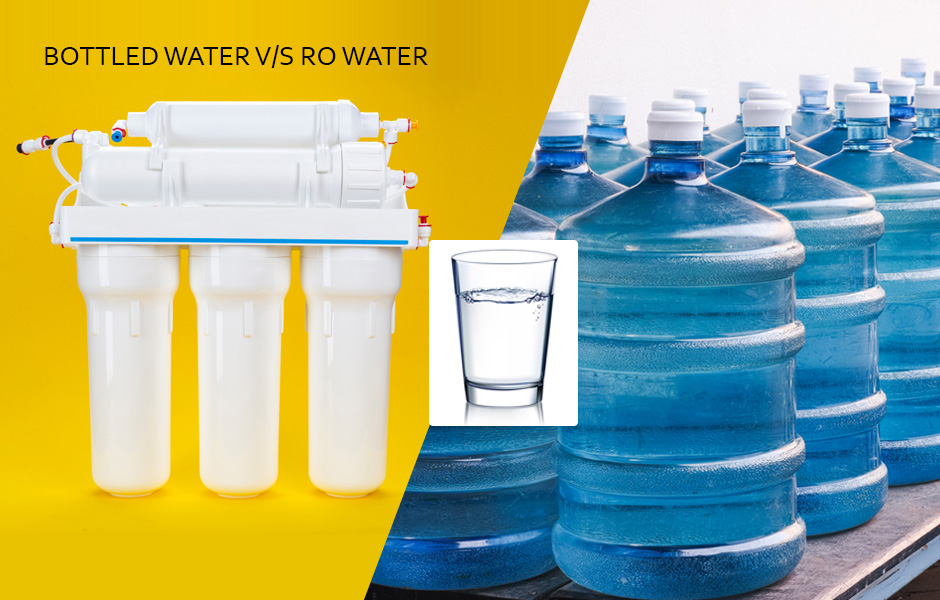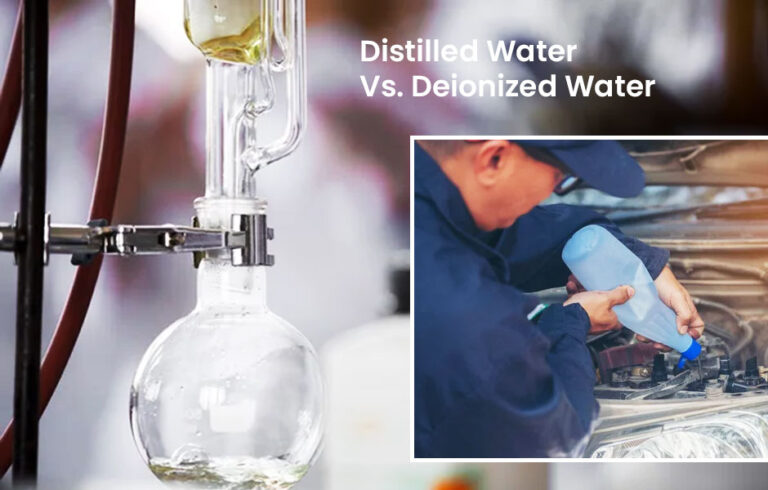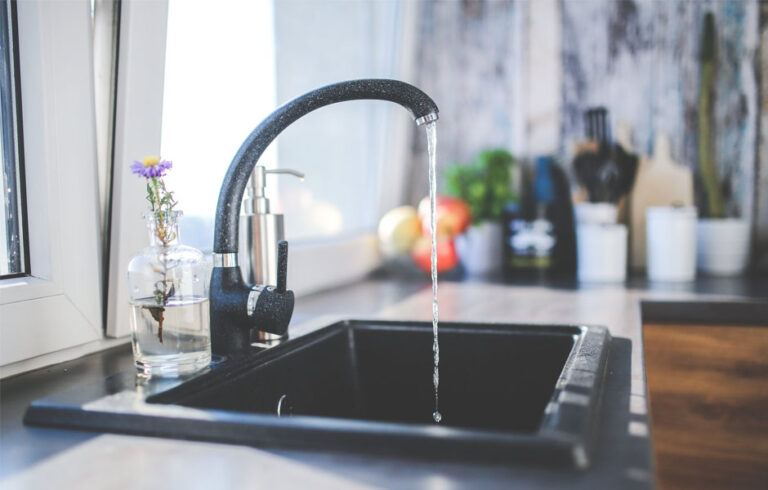In this article, we will discuss the pros and cons of bottled water and RO water. What are the key differences, and should you switch to one or the other? What are the differences in water quality, costs, and consequences?
A Quick Summary:
- Bottled water is considered safest and is in high demand due to convenience. However, many people are considering alternatives due to environmental consequences and ethical issues.
- RO water filtration provides the same taste and cleaner water, making it just as safe as bottled water. It is also cost-efficient and environment friendly not producing plastic waste.
- The initial cost for RO water filtration, if purchased, can be high and requires filter maintenance. However, if RO water filter systems are installed on a rental basis, the cost involved will be much lesser than buying bottled water.
Bottled water and RO water are both preferred options by businesses and families to ensure that they are consuming clean and contaminant-free water. With the rising concern for environmental sustainability and the detrimental effects of plastic usage, many people are considering alternatives for bottled water. One of the main alternatives for bottled water is RO (reverse osmosis) water.
But what are the differences between bottled water and RO water?
Is one option more effective than the other?
What are the pros and cons of each?
In this article, we will take an in-depth look at each of these drinking water options and draw a comparison between bottled water and reverse osmosis water. Let’s get started!
Bottled water
Bottled water generally uses one or many of the filtration process such as: distillation, UV filtration, micron filtration, ozonation, and some times reverse osmosis. However, one cannot be sure about the process and the quality of water. Due to it’s ease of use and portability, bottled water is high in demand. Since most of the people want to ensure that they are drinking filtered and contamination-free water, they prefer bottled water (as it is readily available) over tap water. It is considered one of the safest and cleanest options over other forms of drinking water.
Also read:
Pros of bottled water
The following are some of the benefits/pros of bottled water.
- Convenience: Bottled water is very convenient to use; you can bring it along with you wherever you go. Just grab a bottle and go, whether that’s around your home or anywhere outside. In addition to that, if you forget to take one when you leave your home, you can just as easily buy one anywhere outside.
- Safer as compared to tap water: Many people are concerned about the safety of drinking tap water. Bottled water is filtered tap water, so it is safer than tap water. It has fewer contaminants than tap water.
- Better taste: Many people prefer the taste of bottled water as compared to tap water. This is because bottled water is filtered before it is packaged and sold. This removes chemicals such as chlorine which causes the water an unpleasant taste and odor. Although the same effect of better taste can be achieved by filtering your tap water.
Cons of bottled water
The cons of bottled water far outweigh the pros, as the major pros are taste and convenience which can be achieved through other means. In the United States of America, many organizations are protesting in favor of banning bottled water. The following are some cons of bottled water.
- Ethical issues: Many studies and documentaries have been conducted that highlight how the bottled water industry has turned an essential resource that should be available to everyone into a privatized commodity. Using water as a commodity to make a profit affects those who live in remote and rural areas. It reduces their ability to access an essential resource and human right.
- Environmental impact: Plastic is one of the largest contributors to environmental pollution. Although plastic is recyclable, unfortunately about eighty percent of plastic water bottles are not recycled. Millions of plastic bottles end up as litter and an average of 60 million bottles go into landfills in USA alone. It takes 700 years for the water bottle to start decomposing. Water bottles are one of the largest contributors to single-use plastic waste.
- Costly: Water bottles are quite costly as a source of purified water. Many people only use water bottles for drinking water but use tap water for cooking or washing their clothes. But then think about what you are allowing to enter your body. Contaminants in water don’t rely solely on drinking water to enter your body. 29 billion gallons of water are used on average by an American household according to the U.S. Environment Protection Agency. That is a lot of water and when you consider using bottled water, which is why it is quite expensive.
RO (reverse osmosis) Water
A reverse osmosis water filtration system provides you with bottled water in your home without the bottle. An RO system can be easily installed into your home to filter your water under the sink or along with your water tank. The RO system pushes water through a semipermeable membrane with high pressure to provide you with filtered and contaminant-free water.
Reverse Osmosis filtration provides you with water that is just as clean as the bottled water, it tastes just like bottled water and it does not produce plastic waste. Let’s consider the pros and cons of RO water.
Pros of RO water
The following are some of the benefits of using reverse osmosis water:
- Odorless: One of the biggest pros of RO water is that it does not have an unpleasant odor. As you may notice that the tap water often has a funny smell. The smell is caused by chlorine; which is added to the city’s water by the government to kill bacteria. RO filtration removes the chlorine and other contaminants. This makes sure that there is no smell when you drink the water.
- Healthier option: Filtered water removes harmful chemicals and particles that are present in tap water. Tap water is usually water from lakes and rivers that often get herbicides and pesticides washed into them due to rain. RO filtration helps remove contaminants on a particle level, removing these harmful chemicals from our water.
- Economically friendly: On average the cost of owning and filtering your water is much more budget-friendly as compared to buying water bottles. An average American spends roughly $100 on bottled per year according to statistics. So, although the cost of a filtration system may seem high initially, in the long term it is more cost-efficient.
- Good taste: Many bottled water companies actually sell filtered tap water. RO filtered will provide the same filtered tap water in your home at your convenience.
- On-demand filtered water: The RO filtration allows you to have filtered water on demand as you need. You don’t have to buy it in advance, stock up on it, or purchase in bulk. It is available with the simple push of a lever or button. You can fill up jugs or pitchers to use in gatherings and can use reusable bottles to take it with you on the go.
Cons of RO water
The following are cons of reverse osmosis water, these generally have to do with the costs and maintenance of the filtration system as compared to the quality of the water.
- High initial cost: The cost to purchase and get the RO water filtration can be high. However, it is a one-time-only cost and there are several budget-friendly options available as well. In addition to this, the cost of the system does not determine the quality of water. RO systems that are budget-friendly provide the same quality of water.
- Filters for RO systems need replacing: After purchasing the system and installing it, the only recurring cost is to replace filters. The frequency of filter replacements depends on the exact type of system you get. It may be once every several months or once a year. The cost to replace the filters is however still less compared to purchasing bottled water.
While we have mentioned about RO filter systems being slightly higher in cost, you may consider renting a RO system, which is a new trend in the US, where the entire maintenance will be taken care by the provider.
Bottled water vs. RO water
After consideration of both the pros and cons of RO water and bottled water, it is evident that for a cost-efficient and environmentally friendly option RO water is an ideal solution. However, bottled water is great for convenience and emergencies on the go. The initial costs for RO water can seem high, however, budget-friendly rental options are available, and it is more cost-efficient in the long run.
This article was originally published in Dec-2020 and was last updated in Jan-2023
Author: Sarah Williams
Category: Drinking Water




